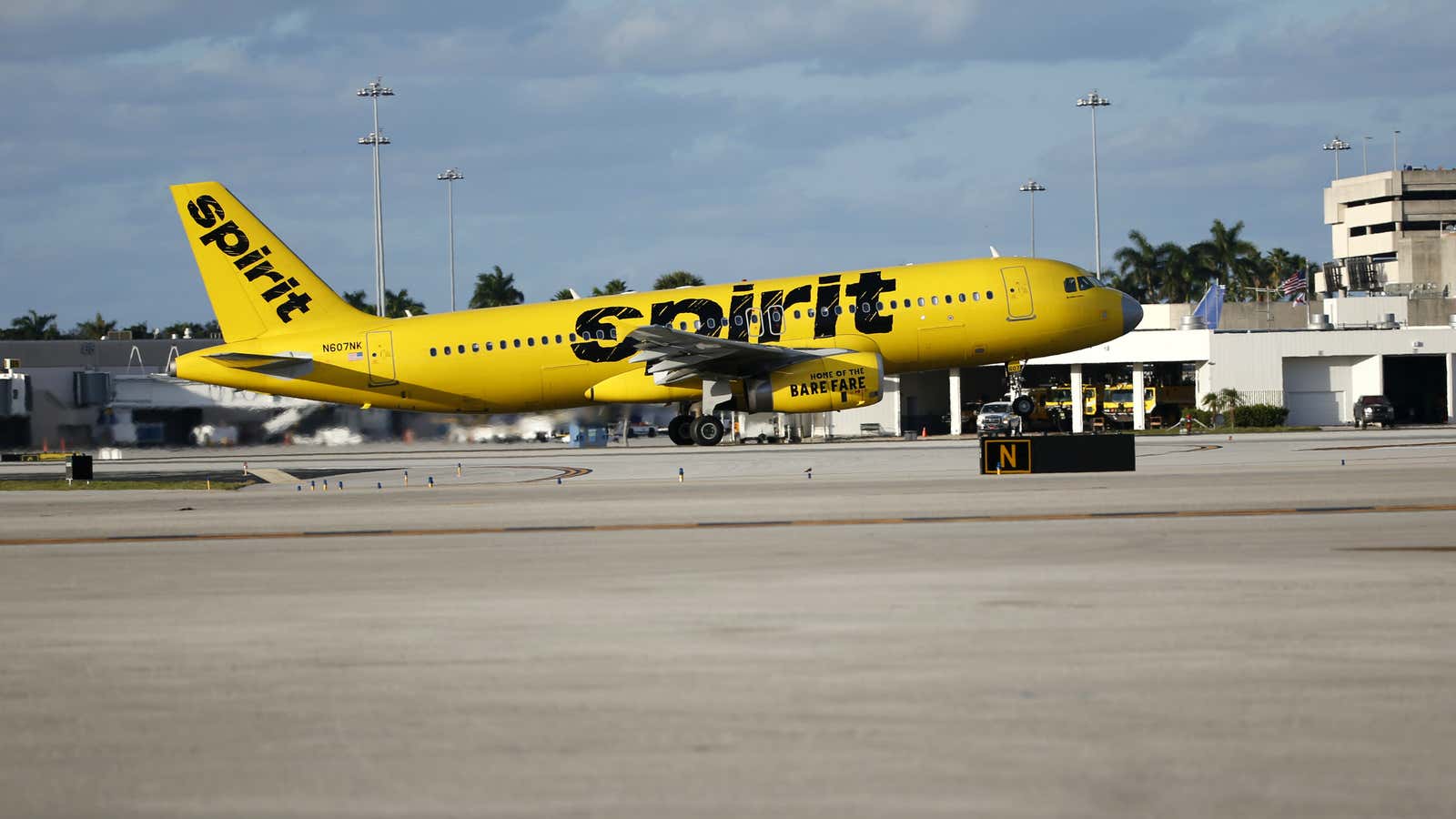Angry passengers in Fort Lauderdale, Florida’s airport violently clashed with Spirit Airlines employees and law-enforcement officers the evening of May 8, after the low-cost carrier cancelled flights due to a labor dispute with its pilots.
Videos posted to social media showed fights had broken out between passengers and law enforcement, who detained at least three people and said in an arrest report that it “resembled the start of a riot,” according to The Washington Post.
The violence in the terminal follows after a string of conflicts between passengers and airline employees that were have been caught on video, including the violent removal of passenger David Dao from a United Airlines flight last month. The incidents have angered both the traveling public and US lawmakers.
Here is why the latest incident should be alarming to travelers and airlines alike:
1. Things get physical pretty fast
Tempers are running high and passengers are understandably exasperated with airlines. Many passengers now know the extreme power airlines over their travel plans and that there is often little, if anything, they can do if flights are cancelled or delayed, no matter how cheap the fare.
But passengers should know by now that an airplane or airport is no place for a fight. Airlines may have been on the defensive about their past practices but will never hesitate to call security or police if employees believe they are being physically threatened. That means that the bar for police intervention in an airport or airplane is still remarkably low, because of potential security risks to crew and passengers. And once the cops are called in, bad things can happen even when they are needed to restore order and offer protection.
2. The airline pays a price
Just look at Spirit Airlines’ shares. The company’s stock was down more than 3% on Tuesday (May 9) afternoon, a day after the incident, while other US carriers were up. Investors appear to be worried about the company’s reputation and ability to staff enough pilots to cater to its paying passengers, and to have enough of a backup plan. United’s CEO Oscar Munoz, whose first attempt at addressing the dragging incident backfired, changed his tune and apologized profusely after shares of the company fell. For any carrier in the spotlight, subsequent incidents—whether they involve a passenger sent to the wrong airport or unwanted fauna onboard—will certainly get more scrutiny.
3. And all carriers will face more heat
Every US airline should be shaken about what kind of image this portrays about American air travel, an industry that occasionally—and somewhat routinely—denies passengers services they had paid for. One takeaway: Airlines that let their internal staffing struggles get out of control have likely already lost the public-relations battle. That was made crystal-clear when United had Dao removed by force to accommodate airline employees who needed seats.
The violence near the Spirit ticket counters, while virtually unheard of in day-to-day air travel, doesn’t make a vacation in the US, particularly using that carrier, at all inviting. And while United and others have tweaked their policies to look more humane to passengers, the country’s carriers are still nowhere near the world’s favorites.
